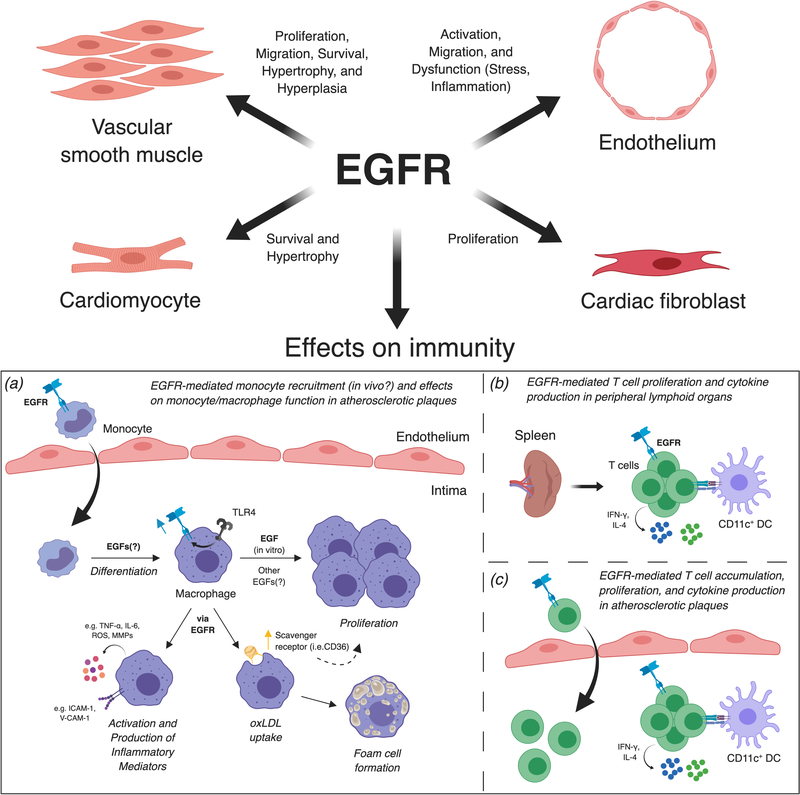Figure 2.
Pathologic effects of epidermal growth factor receptor in cardiovascular disease. Most work surrounding the pathologic effects of EGFR on vascular inflammation has focused on smooth muscle cell proliferation, migration, and survival, and endothelial cell activation and dysfunction, though more recent data has suggested EGFR also affects cardiomyocytes and fibroblasts. Regarding the immune effects of EGFR in CVD: (a) EGFR promotes macrophage accumulation, activation, foam cell formation, and macrophage production of inflammatory mediators in atherosclerotic vessels. Though EGF has been reported to mediate monocyte adhesion and chemotaxis as well as macrophage proliferation in vitro, it remains unknown whether EGF:EGFR interactions (including which EGFs) drive monocyte recruitment, differentiation, and macrophage proliferation in vivo. (b, c) EGFR promotes CD4+ T cell proliferation and cytokine production as well as T cell accumulation in peripheral lymphoid organs and atherosclerotic plaques. It is unknown whether EGFR signaling affects CD4+ T helper cell differentiation in atherosclerosis, drives T cell recruitment into atherosclerotic plaques, or affects local T cell proliferation and cytokine production in plaques.

